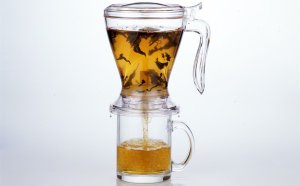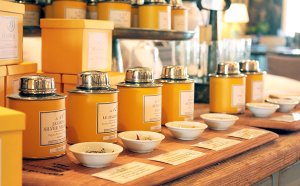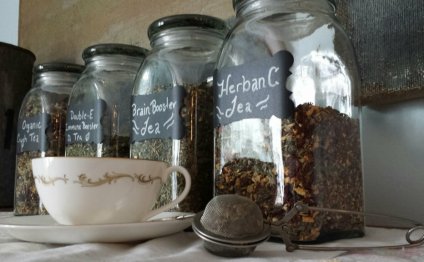
How to store loose leaf tea?
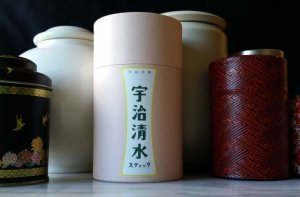 Storing tea can be very simple. If you keep your tea in an airtight container and then store your container in a dark, cool, dry place free from strong odors, you will likely consume it before you begin to notice any degradation in aroma or taste. Looking a bit deeper into tea storage opens up a bit more complexity and in this article, I break it down for you.
Storing tea can be very simple. If you keep your tea in an airtight container and then store your container in a dark, cool, dry place free from strong odors, you will likely consume it before you begin to notice any degradation in aroma or taste. Looking a bit deeper into tea storage opens up a bit more complexity and in this article, I break it down for you.
When we talk about a tea deteriorating, what do we mean? Mostly oxidation. For teas that are during production (see tea processing chart here), or that are not heavily oxidized, there is the potential for these teas to continue to oxidize over time. Because these teas are typically prized for their vitality and lack of oxidation, this ongoing oxidation is considered harmful and a form of deterioration. This is the case for most green teas, yellow teas and depending on personal preference, some white teas.
For teas that are allowed to oxidize during production, especially those that are purposely heavily oxidized, there is much less potential for oxidation to continue, and if it does, it’s much harder to notice in the cup. This is the case for black teas and heavily oxidized oolongs.
What about aging tea, isn’t that a special case for tea storage? Yes, but first let’s discuss what we mean by “aging” tea. The goal of aging a tea is to allow the tea to change over time in order to increase it’s palatability. What’s really happening when we age a tea though? It depends on how we store it, because storing tea is synonymous with aging tea.
Hermetic Seal Storage
When teas are stored in an airtight vessel, the ambient oxygen left in the container allows the tea to slowly oxidize over time. Oolong teas are typically sealed in a container with an airtight seal to age for many years.
 Non-Hermetic Seal Aging
Non-Hermetic Seal Aging
Puer (and other post-fermented teas) are not typically shielded from moisture, rather a controlled level of moisture is employed to influence the aging during storage. In this case, over time, the tea leaves undergo a combination of fermentation AND oxidation. In fact, when is fixed, it is often done so at a lower temperature so that the oxidative enzymes within the leaves are not fully denatured, clearly allowing for further oxidation.
So if we’re not actively trying to age our tea and we just want to preserve the fresh nature of it, what must we do? There are six laws of tea storage that will help you:
- Tea must be kept free from oxygen
Tea leaves continue to oxidize over time with exposure to oxygen. Even when stored in an airtight vessel, some ambient air remains in between the tea leaves and in between the leaves and the top of the vessel (airtight does not mean air-free). Some tea manufacturers will employ techniques when vacuum sealing their tea to prevent exposure to oxygen during storage, others will employ the usage of oxygen absorber packets. Oxygen-absorbing packets usually contain iron and salt. When placed in an airtight vessel, the remaining oxygen oxidizes the iron, creating rust. Once all of the iron has oxidized, the oxygen absorbing packet can no longer absorb oxygen so these packets are really only good for long term storage, as opening and closing the container will keep letting oxygen in rendering the packet useless after a short time. - Tea must be kept free from heat
Heat speeds up oxidation (heat is also used to, but that’s another story). Some delicate green and yellow teas are best if stored in the freezer or refrigerator, this dramatically slows the oxidation reactions. However, this must be done properly to avoid condensation on the leaves. It is advisable to package the tea into small packets that you will use within a week or so each so that your supply overall will stay fresher for longer. Before you put the packages in the freezer, squeeze as much air out as possible as any remaining air will condense and cause moisture to develop on the leaf surface, however this will be minimal. The most important thing to remember when using cold storage for teas is that when you remove a packet from the freezer or refrigerator, do not open it until it has reached room temperature. This can be accomplished by allowing it to sit out for several hours before use and will prevent any condensation that will occur as the leaves come up to room temperature.
This can be accomplished by allowing it to sit out for several hours before use and will prevent any condensation that will occur as the leaves come up to room temperature. - Tea must be kept away from light
Much of what is written on the effects that light has on dry tea leaves is based on anecdotal evidence as this topic hasn’t been studied in depth. believes that “light-induced changes in dry teas can occur through photodegradation” which is a blanket term for any light-induced reaction that degrades the quality of tea. Nigel suspects a combination of theaflavin polymerization, chlorophyll conversion to pheophytins and photo-oxidative changes to theaflavins and residual catechins are at play here. We do know that light-induced damage gives tea a metallic flavor, so while we’re still figuring out exactly what chemical changes are occurring in the leaves, it’s wise to keep your tea free from light. - Tea must be kept away from strong odors
Tea leaves will absorb scent of their surroundings. This is beneficial in the production of scented teas such as jasmine where the leaves are stored in close proximity with jasmine blossoms resulting in a jasmine scented tea. However, this same quality of tea can be detrimental should your tea leaves come in contact with unpleasant odors. This not only means that you should store your tea storage vessels in a place free from strong smells (such as a kitchen or musty basement), it also means that whatever you are storing your tea in must not have a strong smell. Certain wooden containers, airtight tins with strong-smelling rubber seals, and plastic containers can all leave your tea with a disagreeable aroma and taste. - Tea must be kept away from moisture
It’s no secret that tea leaves release their flavor when exposed to moisture. Because of this, you really don’t want to “steep” your tea until you “steep” your tea. Keeping your tea storage free of moisture isn’t just as simple as keeping the leaves away from visible liquids. Tea is hygroscopic, and will absorb moisture from the air. An airtight storage container is really all you need to block out moisture. - Tea is best when stored in bulk
This law is basically a combination of law one and law four but it is worth mentioning. A near empty airtight vessel with a tiny bit of tea in the bottom will deteriorate faster than an airtight vessel completely full of tea. To keep your tea the freshest, fill your storage vessel as much as possible, shake it to let the tea settle, then fill it some more. The more tea in an enclosed space, the less oxygen in that space, and the more tea you have in a space in relation to anything else in that space, it’s more likely that the tea will not absorb the smell of the surroundings. In short, a large amount of tea is less apt to be affected by it’s surroundings than a small amount of tea. This concept is of utmost importance when aging puer and other post-fermented teas, so many times I’ll hear of someone “aging” 2-3 puer cakes in an old dormitory refrigerator or a closet. Think of the refrigerator or closet as your storage vessel, you want it filled with as much tea as possible. You want a closet that smells like tea, not a few teas that smell like your closet.
Two Tiny Rules of Thumb
- Teas that are less oxidized (greens, yellows, and whites) degrade more quickly than teas that are more oxidized (oolongs and blacks).
RELATED VIDEO
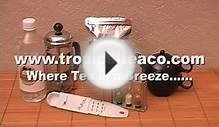

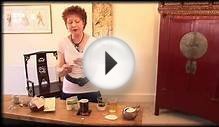
Share this Post
Related posts
Loose leaf tea brewer
Preparing the perfect cup of tea is a process to be savored. Watch how the traditional elements harmoniously come together…
Read MoreOrganic loose leaf Teas
Any tea devotee knows that that not all teas are created equal. Realizing this, we at Arbor Teas perform extensive comparative…
Read More
